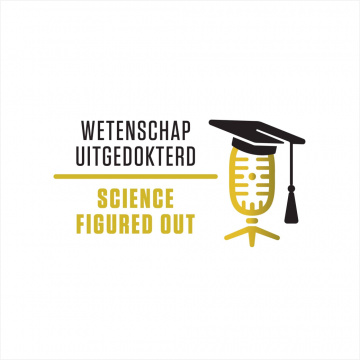Science Figured Out

Scriptie vzw describes the 'Science Figured Out' format on their own website as follows:
Scientists thrive in their trusted environment, whether it's their lab, their office space or the stage at a scientific conference. Science Figured Out takes young researchers out of their comfort zones and places them in front of a camera with a clear assignment: share your passion for research with the general public! Tell us about your research in a clear and convincing 3-minute pitch.
The movies cover a very broad range of topics, but here, we specifically listed the movies of CRIG researchers.
Did you know that cancer researchers draw inspiration from applications such as Amazon, Facebook and even Tinder? Armed with a supercomputer, Celine Everaert, like these applications, processes large amounts of data. Not to sell books or to help people find a date, but to offer cancer patients personalised treatments.
Did you know that 1 in 100 people who develop cancer are under 18 years of age? In order to check whether someone has cancer, a small operation is often still necessary in which a piece of tumour tissue is cut away from the patient to be examined in the laboratory. Ruben Van Paemel and his colleagues are working on a less radical alternative. They want to detect cancer in children in a less painful and faster way: by taking a simple blood sample.
Waiting for results after a medical examination often causes stress and uncertainty, especially in cancer patients. That is why Elien De Thaye is working on a method to use a marker in the patient's blood to determine the effect of a chemo treatment on people with peritoneal cancer more quickly. This way a patient does not have to wait until he can visit the specialist to know whether the treatment gave the desired result.
Several CRIG researchers develop technologies or study molecules that are both relevant for cancer as other diseases. PhD student Fien Gysens for example, studies long non-coding RNA, a type of molecule that has long been regarded as useless but now turns out to be very important in health and disease.
Worldwide, some 235 million people suffer from asthma. Drugs such as a quick-relief inhaler can help to suppress their symptoms. But they can't cure asthma. Fien Gysens hopes that her research will contribute to finding a cure for asthma!
In this pitch, cancer researcher Niké Guilbert talks about the discovery of powerful "packages" that sometimes leak from the intestines into the blood - especially in people with cancer, HIV or chronic inflammation.
In more than 1 in 10 colon cancer patients, metastases develop in a little-known part of the body: the peritoneum. Such peritoneal metastases are extremely lethal and difficult to treat. In his doctoral dissertation, cancer researcher dr. Jesse Demuytere reveals how the peritoneum is not only a victim but also a potential accomplice of cancer cells. He examined peritoneal metastases from patients cell by cell and described their properties.
In Belgium, one in nine women will develop breast cancer in their lifetime. Radiation therapy can treat the disease, although it can also be harmful to the heart. Fortunately, there's a simple solution: hold your breath! Renée De Noyette explains how this works. She's researching which type of breathing offers the most protection.